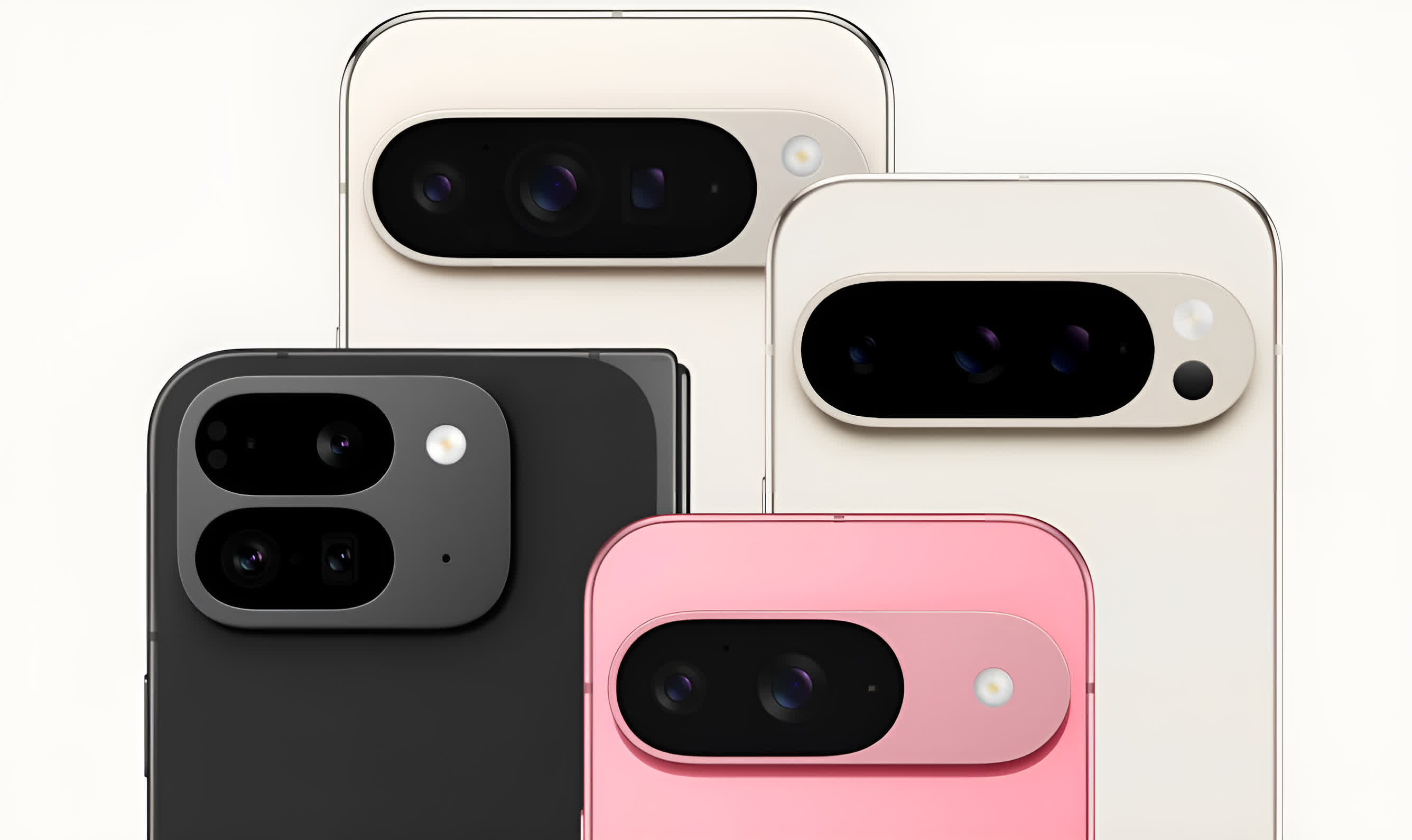What just happened? Google has just pulled the wraps off its Pixel 9 series, and this year's lineup is packing some serious heat with four new models joining the party. Beyond design tweaks and some significant AI renovations, all the handsets introduce new screen sizes, too.
Starting with the Pixel 9, this model has been bumped up from 6.2 inches of screen real estate to 6.3 inches. It's joined by a middle child of sorts that crams most of the Pro XL's premium features into a chassis closer to the vanilla 9's dimensions. Big screen fans might instead prefer the all-new 9 Pro XL this year, with its expansive 6.8-inch panel that makes it 0.1 inches larger than the outgoing Pixel 8 Pro model.
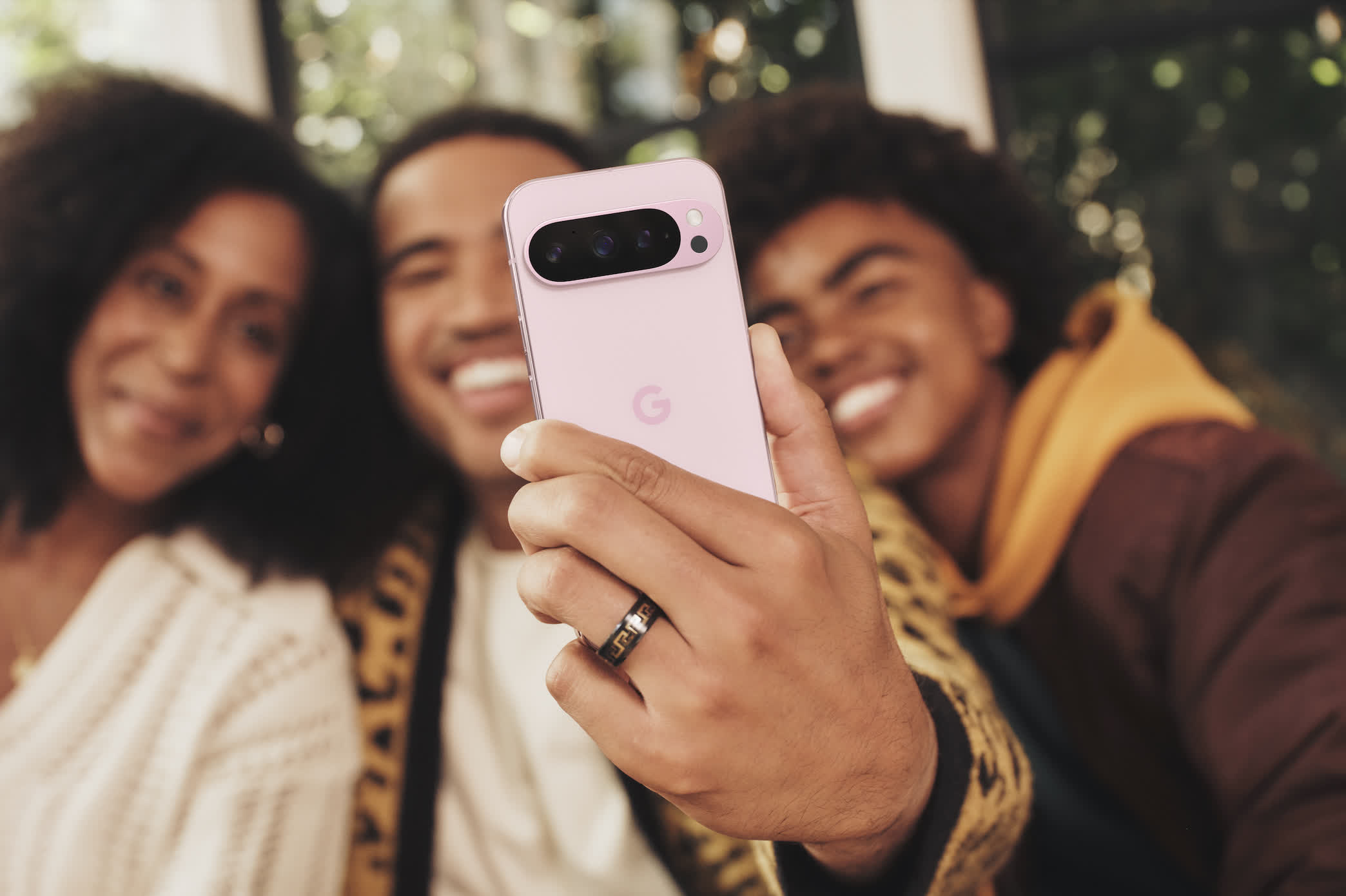
All the new Pixels sport a revamped design with flat sides that give off some iPhone vibes from the front. Flip it over, though, and that elongated, floating camera oval screams pure Pixel DNA.
Let's not forget the real heavyweight of the bunch: the Pixel 9 Pro Fold. Formerly just the Pixel Fold, Google is giving its foldable a fresh lick of paint with a slimmer 5.1mm unfolded profile and a taller 6.3-inch outer display (versus 5.8 inches on the previous gen). When unfolded, it transforms into what is essentially a miniature tablet.
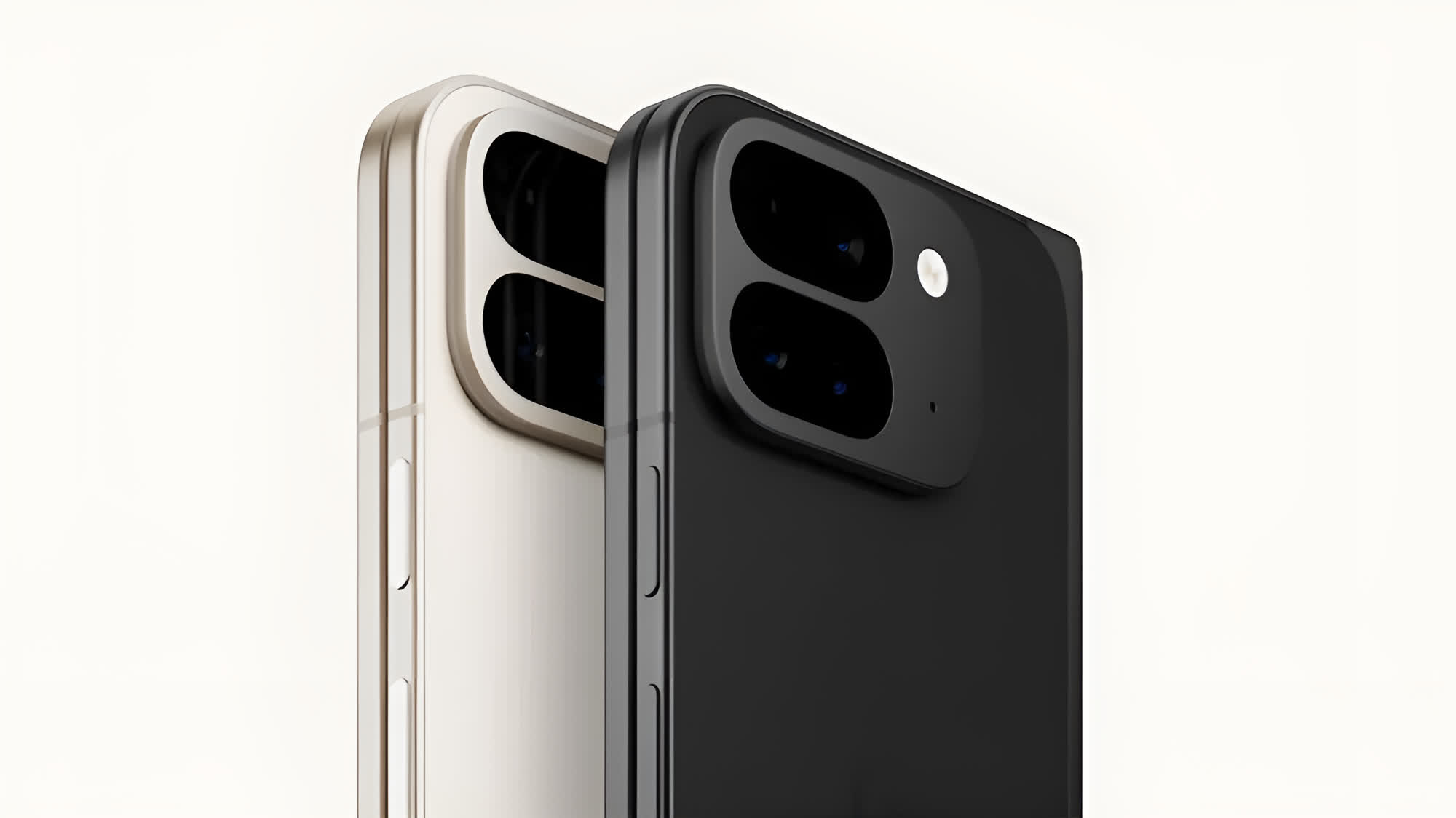
As for cameras, we're looking at the same 50MP main shooter as last year across the board, but with revamped ultra-wides and significantly upgraded selfie sensors, including a 42MP autofocus snapper on the Pro models. Unfortunately, Google continues to skimp on the cameras for the foldable as it still does not match its rigid brethren: It gets a 48MP primary sensor instead.
All four phones are packing Google's brand-spanking-new Tensor G4 chip, too. The silicon's received support for an updated Gemini Nano with multimodal smarts to analyze images and speech alongside text. That's unlocking some wild new camera tricks, like a "reimage" feature in the Magic Editor that lets you select parts of an image and edit them (heavily) with nothing but text prompts. Tools for editing yourself into group photos are also present, and there's a brand-new Pixel Studio app that lets you generate illustrations with text prompts.
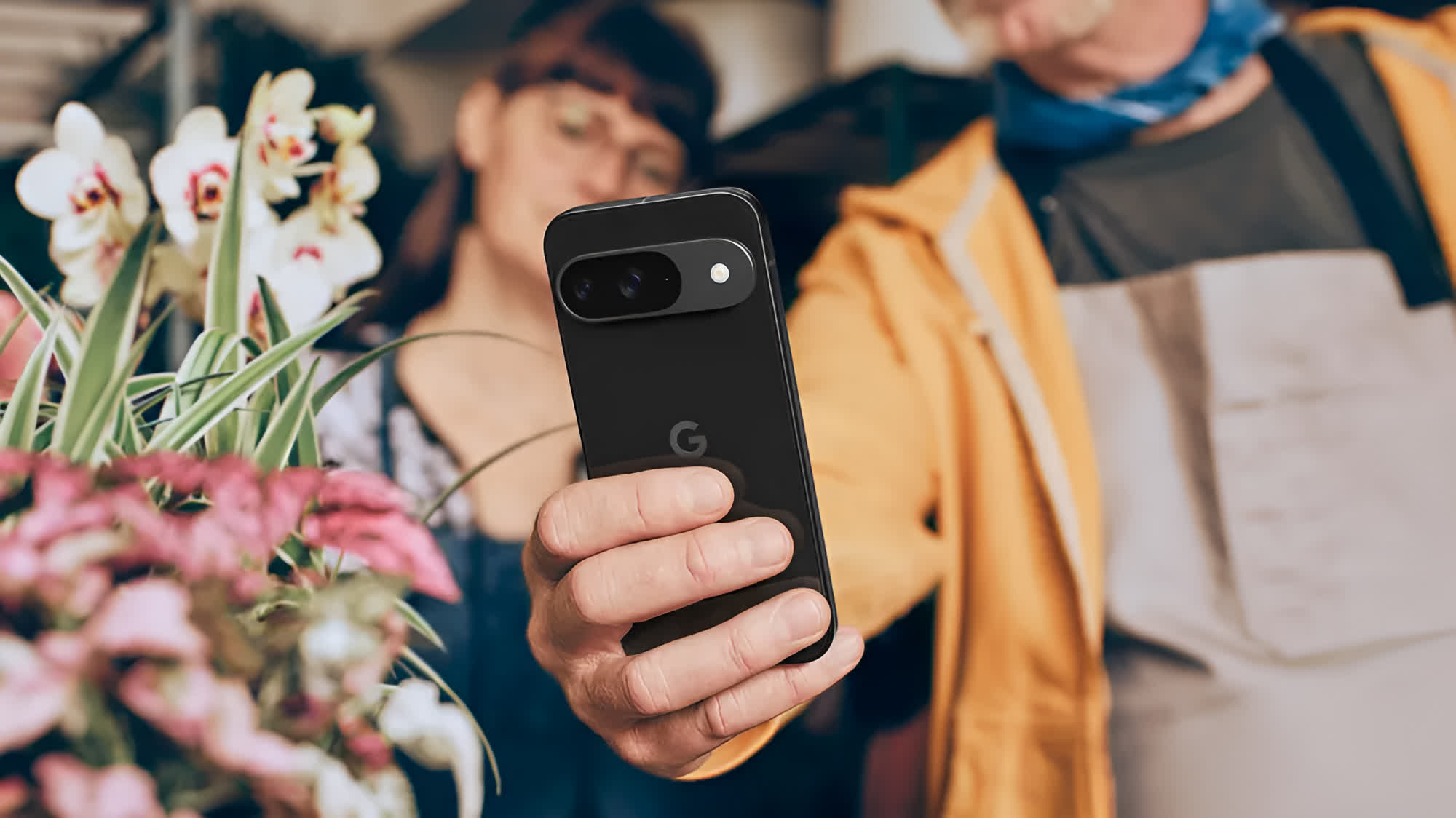
Another major AI feature is the long-awaited Zoom Enhance that's finally making its debut on Pixel devices. First unveiled at last year's Made by Google event, this camera trick uses machine learning to intelligently fill in missing details when digitally zooming. The Pixel 9 Pro, Pro XL, and Pro Fold will ship with Zoom Enhance enabled out-of-the-box, and the Pixel 8 Pro is already receiving it.
Those who followed the Microsoft Recall controversy might be bewildered to know that the Pixels are getting something similar. Dubbed Pixel Screenshots, the feature introduces the ability to catalog and retrieve info from your screenshots on demand. However, unlike Microsoft's approach of constant screen recording, Google's feature only works with screenshots you manually capture.
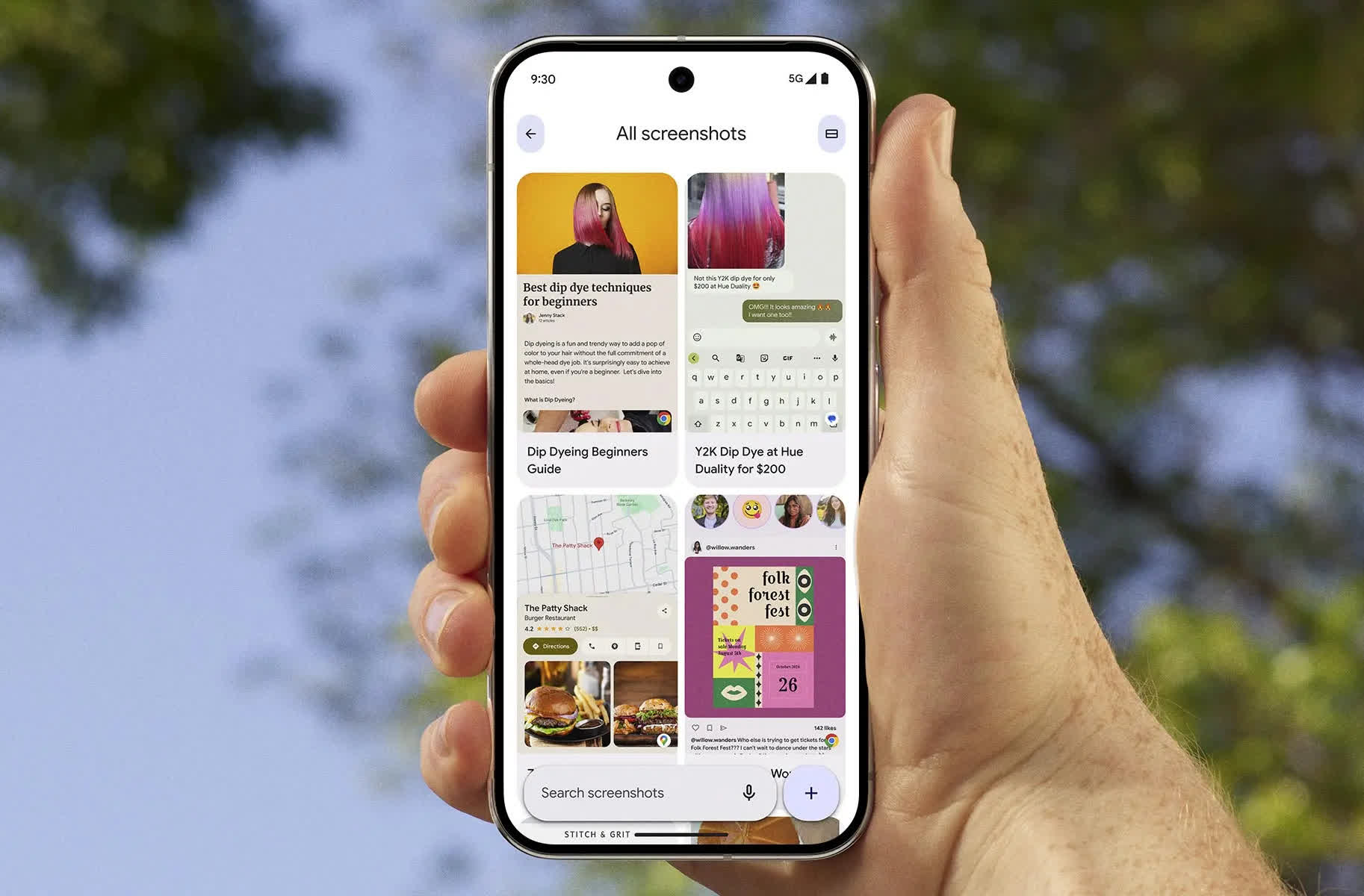
Another significant genAI-powered addition is Gemini Live, meant to compete with Apple's new Siri. This AI assistant can engage in multi-turn, free-flowing conversations on complex subjects, understanding interruptions and context like a human. Unfortunately, it doesn't come free. While Pixel 9 Pro owners get it free for the first year via the bundled Google One AI Premium trial, other users will have to pay $20/month. Amusingly, it also ran into some issues at the keynote.
Google's Gemini live demo failed twice. �'�
– Adan (@durreadan01) August 13, 2024
This reminds me of when Face ID refused to work in iPhone X event. pic.twitter.com/fZwKrhSBKD
Pricing kicks off at $799 for the Pixel 9, with the 9 Pro and Pro XL starting at $999 and $1,099 respectively. The foldable Pixel 9 Pro Fold, meanwhile, demands a $1,799 premium. Wallets at the ready?
